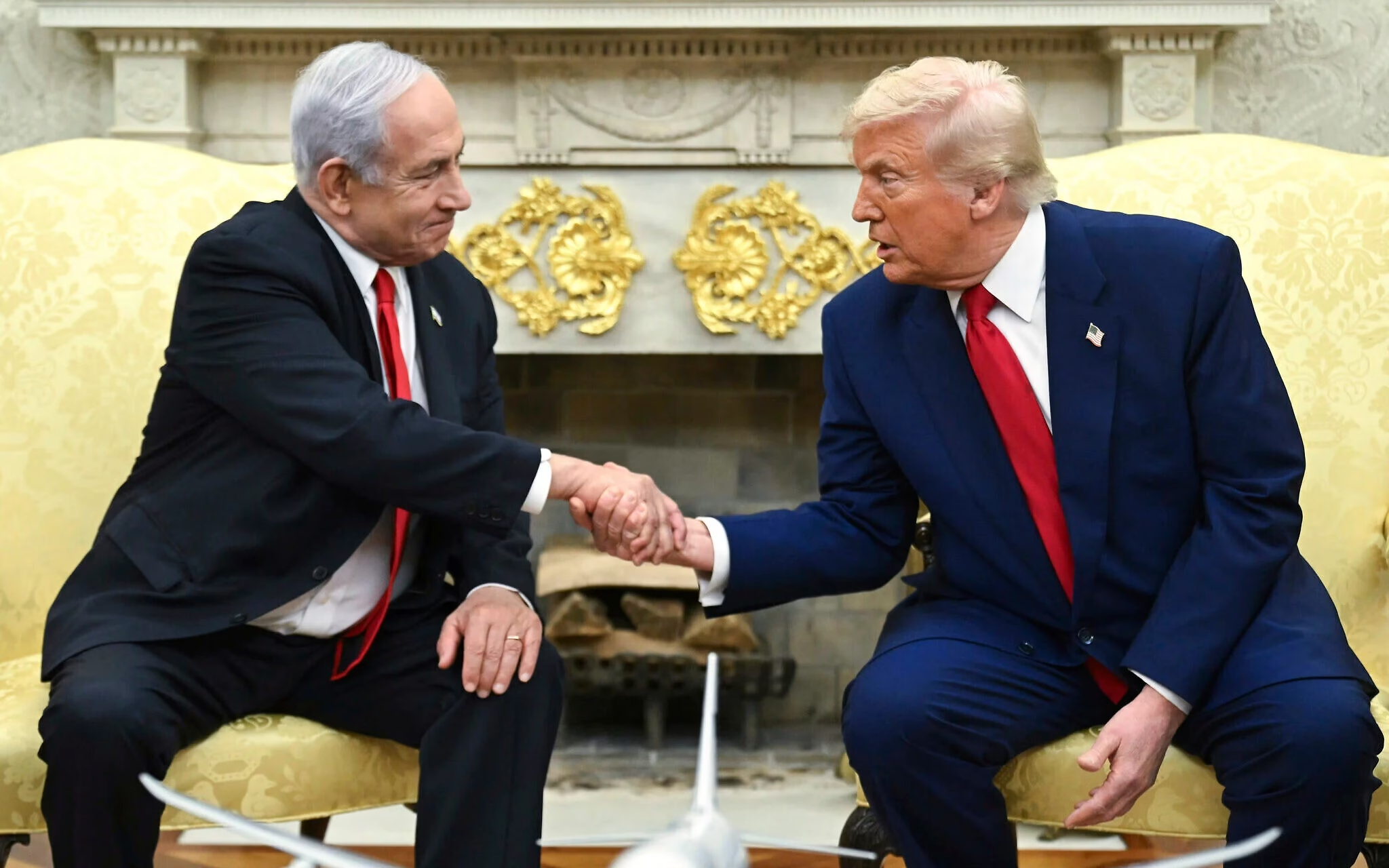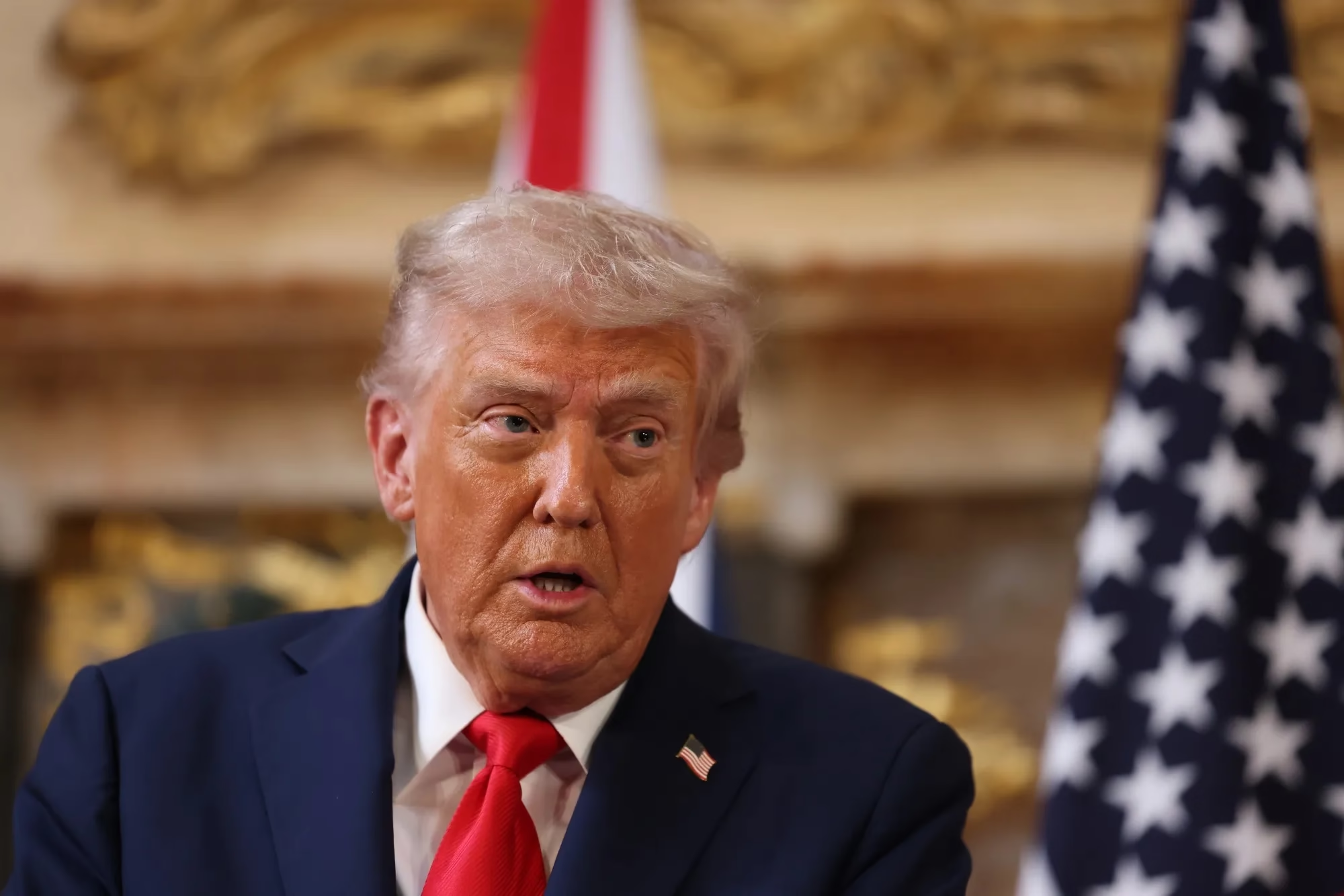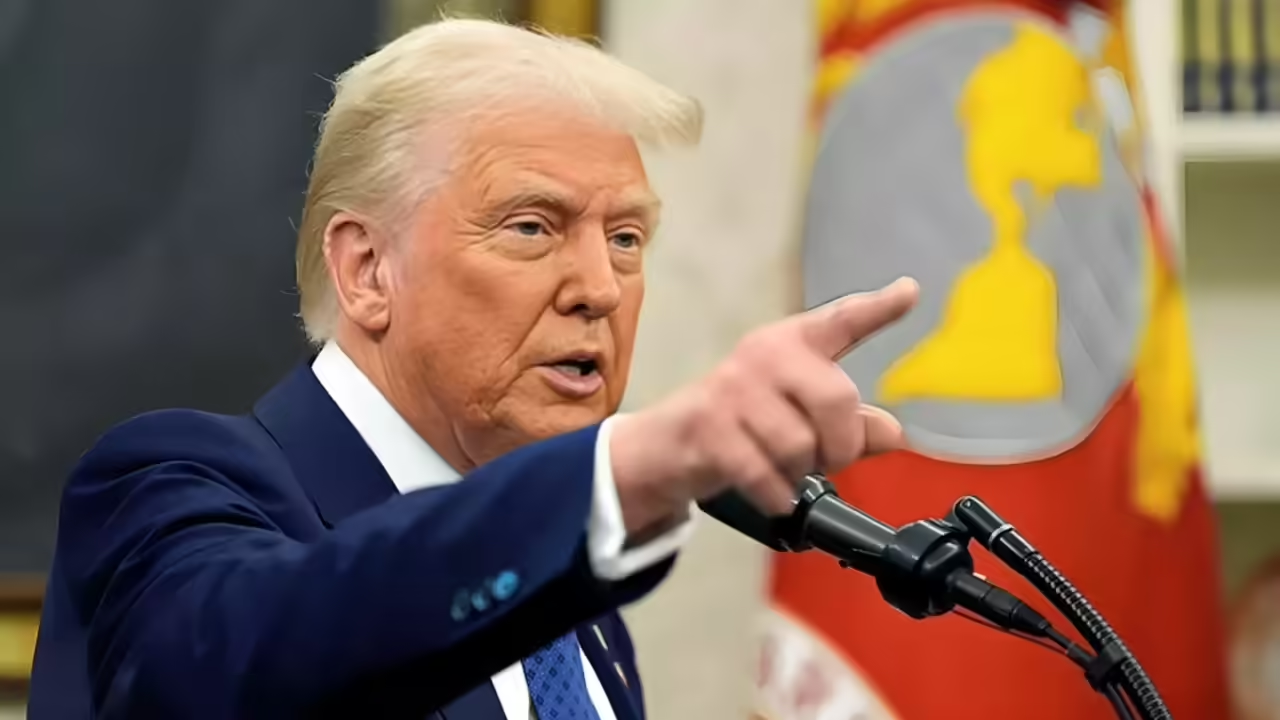WASHINGTON, July 8, 2025 — Israeli Prime Minister Benjamin Netanyahu formally nominated U.S. President Donald Trump for the Nobel Peace Prize during a high-stakes meeting at the White House on Monday. The two leaders met as global attention focused on the deepening humanitarian crisis in Gaza, renewed hopes for a ceasefire with Hamas, and simmering tensions with Iran.
Netanyahu’s visit comes just days after U.S. military strikes targeted Iranian nuclear infrastructure, prompting a brief but intense escalation in the long-running conflict between Israel and Iran. This marked the first in-person meeting between the two leaders since those strikes.
Netanyahu’s Surprise Nobel Nomination for Trump
At the start of the meeting, Netanyahu presented Trump with a letter he said he had submitted to the Nobel Committee, praising the president’s past diplomatic efforts in the Middle East, notably the Abraham Accords.
“I want to express the appreciation and admiration not only of all Israelis, but of the Jewish people,” Netanyahu said as he handed Trump the letter. “You deserve it.”
Trump responded with appreciation: “Coming from you in particular, this is very meaningful.” The nomination follows a similar move last month by Pakistan, which also said it would recommend Trump for the Nobel Peace Prize, citing his prior efforts to de-escalate regional conflicts.
Gaza Ceasefire Talks and the Ongoing War
Much of the meeting centered on Trump’s push for a ceasefire in Gaza, where Israel’s 21-month-long military campaign against Hamas has led to devastating consequences. Nearly 60,000 Palestinians have been killed, according to health officials in Gaza, drawing sharp international criticism over alleged war crimes and humanitarian violations.
Indirect talks between Israeli and Hamas negotiators resumed Monday in Qatar after a six-week pause. Despite cautious optimism from both sides, several key issues remain unresolved. Chief among them: Netanyahu’s demand that Hamas be permanently removed from Gaza, and Palestinian calls for firm guarantees that Israel will not resume hostilities after any ceasefire.
Speaking at the White House, Netanyahu maintained a hardline stance but signaled a willingness to engage. “It shouldn’t be a prison,” he said when asked about controversial Israeli plans to potentially relocate Palestinians from Gaza to areas like Rafah. “It should be an open place and give people a free choice.”
Netanyahu is currently facing an active arrest warrant request from the International Criminal Court (ICC) for alleged war crimes related to the Gaza conflict. Human rights groups have accused Israel of pursuing forced displacement strategies in Gaza, which some have labeled a “blueprint for ethnic cleansing.”
Iran, Ukraine, and Global Security
The leaders also discussed the aftermath of recent U.S. strikes on Iran’s nuclear sites. Trump expressed hope that further military action could be avoided. “They want to work something out,” Trump said of Iranian leaders. “They’re very different now than they were two weeks ago.”
While no date has been confirmed for further talks with Iran, Trump hinted that an announcement may be made soon.
Addressing Russia’s ongoing invasion of Ukraine, Trump took a stronger stance than in previous months, criticizing President Vladimir Putin and pledging additional weapons shipments to Kyiv.
“I’m disappointed, frankly, that President Putin hasn’t stopped,” Trump told reporters. “They’re getting hit very hard now. We’re going to have to send more weapons.”
This comment comes amid confusion in Washington after the Biden administration quietly paused certain weapons deliveries due to depleted U.S. munitions reserves.
Trump and Netanyahu Reaffirm Strategic Alliance
Trump claimed that Hamas leaders were open to negotiating a ceasefire. However, he offered no specifics. When asked about a two-state solution, he deferred to Netanyahu, who reiterated Israel’s long-standing policy of maintaining full security control over Gaza and the West Bank.
“I think the Palestinians should have all the powers to govern themselves, but none of the powers to threaten us,” Netanyahu said. “Certain powers like overall security will always remain in our hands.”
He emphasized that peace in the broader Middle East was possible — but only under Trump’s leadership. “I think we can work out a peace between us and the entire Middle East with President Trump’s leadership and by working together,” he said.
Outlook for Ceasefire and Diplomacy
Ahead of his visit to Washington, Netanyahu expressed cautious optimism about reaching a ceasefire with Hamas. Israeli military radio and government sources described initial talks in Qatar as “positive,” while Palestinian officials were more reserved, calling the early stages “inconclusive.”
Netanyahu also met earlier Monday with U.S. Secretary of State Marco Rubio and Middle East envoy Steve Witkoff. He is expected to remain in Washington for further discussions with Vice President JD Vance, House Speaker Mike Johnson, and other senior officials.
As diplomatic efforts intensify, the international community continues to pressure both Israel and Hamas to reach an agreement that could bring a halt to one of the most destructive conflicts in the region in decades.



